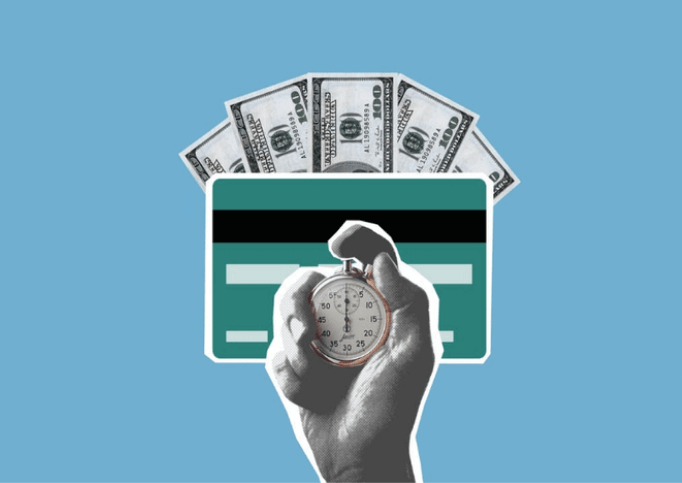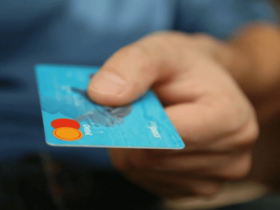How to Build Credit With Credit Cards? Getting a credit card and using it wisely can be one of the best ways to build a solid credit history, especially at a young age.
Credit cards provide the best way to build your credit and improve your credit score by showing you how to manage credit on a regular basis.
Your credit history is a record of your past behavior as a borrower of money. Lenders use this past behavior to determine how likely they are to pay back the money, or more generally how reliable and reliable you are.
But if you are rebuilding your credit score or starting from scratch. It can be difficult to get approval for a credit card at first.
In today’s world, good credit matters more than ever. A strong credit score can mean better rates when you want to take out a car loan or home mortgage.
It can help to rent a house because the landlord can investigate it. And many employers look at credit scores when deciding on hiring job candidates.
People with a long history of timely payments viewed by lenders as very reliable borrowers. With the possibility of paying off the loan on time and in full.
People with a bad credit history, including late payments and maximum cards, seen as risky borrowers who might not able to repay the loan.
Depending on your credit history. A company can decide whether they want to do business with you, and on what terms.
READ ALSO : What Is a Credit Score?
Here are some best ways to Build Credit With Credit Cards.
How to Build Credit With Credit Cards
1. Check Your Credit Score
The number of credit cards you can apply for will depend on your credit score. Therefore, before you start applying for a credit card, it helps to know what your credit score is so that you can apply for the right people.
Discover is one of several credit card issuers that offer free credit monitoring tools for anyone to sign-up – whether they are cardholders or not.
Discover’s service offers a version of the FICO credit score that most lenders use. You can use the service to get a look at your current credit score.
2. Become an Authorized User
The most direct way to build your credit is to take out the credit card in your name and pay it every month.
But when you do not have a previous credit history it can be difficult to get a card with reasonable interest rates.
Some companies have special cards for college students, but they also have requirements. Many young people may have trouble meeting them, such as demonstrating that they have a reliable source of income.
There is an easy way around this puzzle – ask to be an authorized user on your parent’s card. While this is a common first step in the world of credit, there are some potential threats to consider.
If mom or dad constantly pays the bill then your credit score will get a boost. But if they don’t, your FICO score — a number derived from your credit history — will be brewed just like them.
Keep in mind that the primary account holder is responsible for the entire balance, no matter what allegations are made. So if you ask a parent to be an authorized user on their card, make sure you have a clear, mutual understanding of how much you spend each month.
3. Consider a Secured Credit Card
A secured credit card is “secure” that you deposit to a particular bank account. Usually, the credit limit on your card is based on that deposit.
If you do not have bad credit (or no credit), one option is a secured credit card. These are available to just about anyone, but there is a catch.
You have to set up a refundable deposit to open an account, which consists of several hundred dollars. Generally, the deposit is also your credit limit.
Secured cards limit the lender’s risks and also help consumers who may be tempted to stay within their means with regular credit cards.
Opening a secured credit card and managing it well can help in almost every aspect of your credit score. For example, if you make all your payments on time, you will establish a track record of positive payments. And if you keep your card open for a long time, you will develop a long credit history.
Secured credit cards often include additional fees that are not in standard credit cards and have a higher interest rate. But they are real credit cards and will help you to create credit.
If your bank reports your payment to one or more of the three major credit bureaus, and your credit record is otherwise impeccable, you may have enough history to apply for a regular credit card after six or so.
Once your score is high enough to be approved for a better card, you can consider closing your secured card if you want to save money. Your secured credit card issuer may also invite you to upgrade your card to an unsecured credit card after a period and return your deposit.
READ ALSO : How To Switch Bank Accounts
4. Pay Your Bill on Time
The most important factor in your credit score is payment history. To make credit with your credit card, make your minimum payment at least on time every month.
If you miss the due date of your bill, the card issuer may charge you and you may lose any introductory or promotional interest rate in your account.
One of the best ways to ensure that you never miss your payment is to set up autoplay on your account.
You can make a minimum payment using AutoPay, then pay the balance, or pay as much separately as possible.
If you make a late payment, the credit card company may report your account late to the credit bureau, as it is 30 days old. Late payments are a negative sign that can damage your credit score and remain on your credit report for seven years.
5. Avoid Getting Too Many Credit Cards
It can be tempting to sign up for a lot of credit cards, especially with special offers for rewards and in-store financing.
While there is nothing wrong with opening more than one credit card account, there are no simple rules about how many cards are there.
However, there definitely comes a point when managing multiple accounts is more trouble than it is worth.
If a new credit card can buy you, you can buy more, or if you have trouble remembering to pay for a new card with everyone else, don’t open it.
These things will hurt your credit rather than just help you. In addition, each time you open a new card, it will be listed on your report as a check, which can leave your score up to one year.
6. Maintain a Low Utilization Rate
The balance of your credit card relative to the credit limit is also an important factor in your credit score.
Credit scoring models use the balances and credit limits that appear on your credit report to calculate your credit utilization ratio. Less usage (which can be achieved with a lower balance) is better for your credit.
Limiting your card usage, especially when you have a low credit limit, can help you maintain a low usage rate.
If you use your card frequently or for large purchases. You can reduce your reported balance approximately 21 to 25 days before your bill due date before your statement expires.
READ ALSO : How to Check your Bank Balance Online
7. Keep Your Old Credit Cards Open
The length of your credit history is a relatively minor factor in determining your credit score, but it is important nonetheless.
To calculate this factor, the credit scoring model will take the average age of all your accounts.
This time-limit calculation means that by keeping your oldest credit card open. You can keep a long credit history, which will boost your credit score.
If you discontinue those old credit cards, your credit history will be shortened. And your score may decrease as a result.
8. Keep an Emergency Fund
People often drown in credit card debt because it is a surprise for life, and it is easy to put expenses on credit cards and pay them later.
But for a lot of people, the “later” never really happens because emergencies keep popping up. And those new expenses are added to the old ones on the credit card.
This usage causes your credit card balance to deteriorate, which makes the usage ratio worse, and reduces the credit score.
A separate emergency fund is the best way to break this cycle. This way, you can use your credit card to cover emergency costs if you wish. But you can also pay the fees immediately and stay out of the debt cycle.
Frequently Asked Questions
READ ALSO : Credit Card Comparison of All Banks in India








